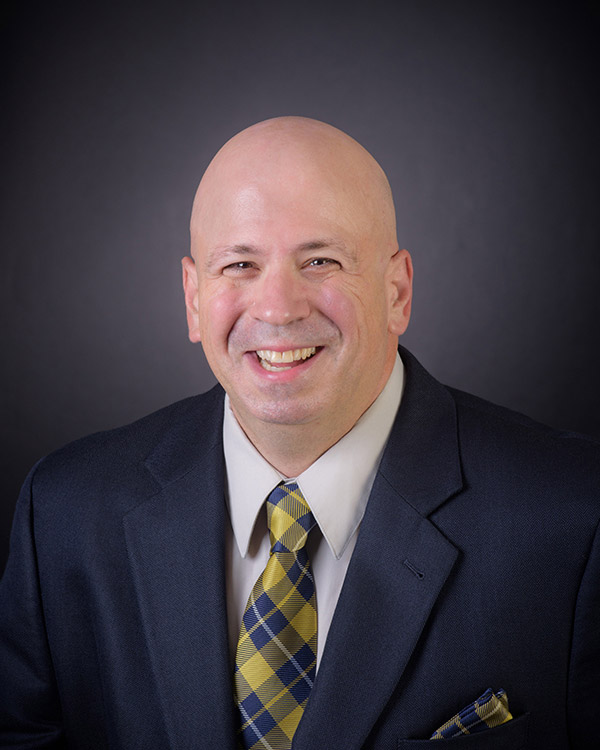Faculty Spotlight: Hank Brightman Has Packed White-Collar Criminology, War-Gaming, Guantanamo Bay and Humanitarian Assistance into One Career

A road map of professor Hank Brightman’s career would show more twists and turns than straightaways.

(U.S. Navy photo/Released)
The Boston-area native used a leisure studies degree from the University of Massachusetts at Amherst to start out as a National Park Service ranger. He carried a badge and focused on natural resources protection and hazardous waste enforcement. His tours included jobs as chief ranger at the Roosevelt-Vanderbilt National Historic Sites in Hyde Park, New York, and co-manager of waste and pollution prevention for all of the park service.
Along the way, he earned a master’s degree in criminal justice administration from Boston University and later parlayed that experience into a position as a criminal research specialist for the U.S. Secret Service.
Eventually, he wanted to really dive into the academic side of criminology. He earned his doctorate in educational leadership at Seton Hall University, focusing on youth involvement in white-collar crime. That led to teaching positions at Essex County College and then Saint Peter’s University, both in New Jersey.
When the World Trade Center towers were attacked in 2001, Brightman could see them burning from his office. Like many who witnessed that moment in history, he felt compelled to act.
“I was angry. I went home and told my family that I was either going to go back into the Secret Service, or I was going to join the military,” Brightman remembered. “They could choose, but one of those two things was happening.”
In 2003, Brightman accepted a commission as a cryptologic warfare officer in the U.S. Navy Reserve at age 35.
It was that reserve service that eventually led him to join the U.S. Naval War College faculty.
“It was two-week to three-month assignments during the summer here supporting the War Gaming Department,” Brightman said. “I was doing work on game theory and looking at the conflict in Iraq and doing some interesting things with non-linear thinking and data visualization.”
Ultimately that led to a one-year active-duty special work assignment at the Naval War College as a visiting professor. He worked on gaming analytics and some specialized, classified forms of gaming that were groundbreaking for the institution.
But Brightman had his feet in two different worlds. He was still a tenured professor and department chairman at Saint Peter’s. Then the Naval War College made him an offer meant to lure him to Newport for good.
“They put together a package for me here that allowed me to do really meaningful work as a civilian professor in support of our nation and its needs,” Brightman said. “Being closer to my parents, it made a lot of sense for a lot of reasons.”
In addition to directing war games, he was the War Gaming Department’s director of applied research and analysis and taught the college’s war-gaming and homeland-security electives.
In 2016, Brightman joined the college’s Civilian-Military Humanitarian Response Program, which aims to prepare military officers to take part in disaster response and help them understand the consequences of conflict. This means regularly working with the United Nations, the International Committee of the Red Cross and Harvard and Brown universities. His specific expertise is in advancing the simulation and gaming aspects of the program’s courses.
He is also the EMC Informationist Chair at the college, a position that he has used to focus on the issue of corruption – either the corruption of technical data or corruption in the delivery of humanitarian aid.
“Going back to my life in the park service and the Secret Service, the continuous thread for me has always been that white-collar corruption mitigation piece,” said Brightman, who is the author of a white-collar crime textbook used by universities.
However, Brightman only returned to academic work this year. In January 2018, he was mobilized in his position as executive officer of Navy Information Operations Command Texas for a year of active duty that took him to Washington, D.C., and Guantanamo Bay, Cuba.
Assigned to the case of a “high-value detainee” there, he was a lead investigator with the Military Commissions Defense Organization, which is part of the U.S. military legal system used to try law-of-war offenses.
“I was there for issues germane to providing a proper defense of a detainee accused of 9/11 crimes,” Brightman said. “The detainee had an interest in several of the areas I have examined in my professional life, so I was able to apply some of my academic background to the conversations.”
But the twists and turns in Brightman’s career don’t stop there.
Using his G.I. Bill, he has earned dual master’s degrees and two certificates of advanced graduate study in counseling and holistic leadership from Salve Regina University in Newport.
That interest began when he was in command of two reserve naval security force units. Since 9/11, those sailors have been tapped for guard duty at overseas facilities holding war detainees.
It was emotionally tough work, Brightman found.
“My sailors were coming back from those assignments fundamentally broken, having a lot of issues reintegrating,” Brightman said.
“I was looking at all of this as a commanding officer, feeling relatively powerless.”
Now, on his own time, he has a part-time private practice in Newport focused on wellness and recovering from trauma – which might become his next career after he eventually retires from full-time academia.
From park ranger, to the Secret Service, to the academic ivory tower, to 9/11 detainees in Cuba, to trauma counseling – it’s been an unusual journey, Brightman acknowledged. The string through all of it, in his eyes, is service. He was recently selected for promotion to commander in the reserves.
“It’s about a life of service, and that’s what matters to me,” he said. “I feel exceptionally blessed with the opportunities I’ve had to serve others so far.”
